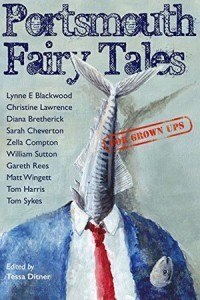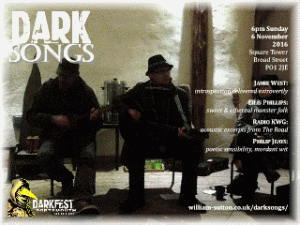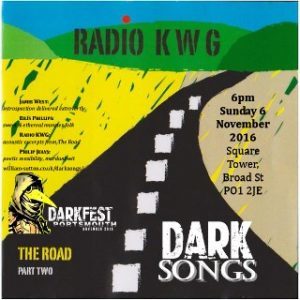William Sutton's Blog, page 25
December 30, 2016
How many songs must a songwriter sing? (Dylan for beginners)
To celebrate Bob Dylan’s Nobel Prize (acceptance speech here, typically elliptical), here’s a simple intro to Dylan article I wrote for Go! English and Speak Up (Italy) in 2006, to celebrate his 65th birthday, asking if it was time to retire. See also Bob’s Nobel acceptance speech.
BOB DYLAN: KNOCKING ON RETIREMENT’S DOOR?
How many songs must a songwriter sing before it is time to retire? In 2006, rock legend Bob Dylan turns 65, but there’s no sign of him giving up yet.
In 2000 he won the Oscar for best song in a film (THINGS HAVE CHANGED in The Wonder Boys). He topped Rolling Stone magazine’s list of 500 Greatest Songs. Martin Scorsese has directed a documentary about his early years. And Dylan has published his autobiography, Chronicles Volume I.
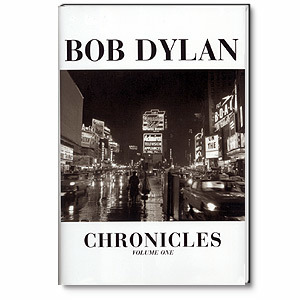
SPOKESMAN FOR A GENERATION
In his first television interview for nineteen years, Dylan said he felt like an impostor when confronted with adoring fans.
“I never wanted to be a prophet or a saviour. I don’t believe you’re going to find anything in the songs that says that I’m a spokesman for anybody or anything.”
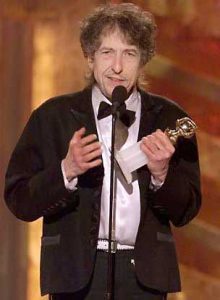
Yet fans consider him a poet and a prophet. English protest singer Billy Bragg once commented: “Being the spokesman for my generation was the worst job I ever had.”
From the first, Dylan suffered from the same problem.
His music was a radical change from the three-minute hits of the 1950s. Sinatra sang sweetly and Elvis was sexy, but Dylan had a message. His eloquent ballads launched a thousand protest movements.
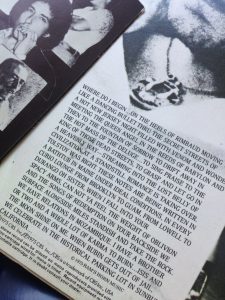
TALK ABOUT A REVOLUTION
BLOWIN’ IN THE WIND sounds like a mediaeval folk song, but its modern relevance was clear: “How many times must the cannon balls fly / Before they are forever banned?” Cannon balls may be ancient history, but Dylan was talking about civilian bombings and weapons of mass destruction.
THE TIMES THEY ARE A-CHANGING confronted the older generation’s compromises: “Your old road is rapidly aging / Please get out of the new one if you can’t lend a hand.” Hippies and activists soon got Dylan’s message. Millions protested about the Vietnam War. Concerts like Woodstock spread the word: “Make love, not war.”
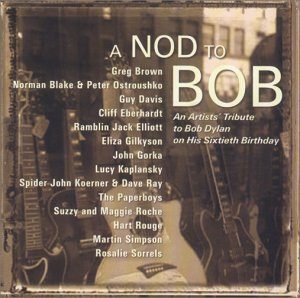
STORY SONGS
Dylan moved on. He denied he was the leader of any movement and returned to the music he loved as a teenager: rock and roll. His hit LIKE A ROLLING STONE was recently named best ever rock song by Rolling Stone Magazine. Dylan said: “I don’t pay much attention to that.”
But cultural critic Greil Marcus, in his book Bob Dylan at the Crossroads, claims this number one changed pop music forever. 6½ minutes long, it challenged the hit single format, making way for classics like Hey Jude and Bohemian Rhapsody. More importantly, it was an intellectually stimulating rock song. Music could be meaningful!
The song tells the story of a proud girl who has lost her wealth, and with it her position in society. “How does it feel?” Dylan asks, “To be without a home?”
His vocal is a warning to us all: “Nobody’s ever taught you how to live out on the street but now you’re going to have to get used to it.” We should think twice before judging the poor and the homeless. If things were different, it could be us on the street.
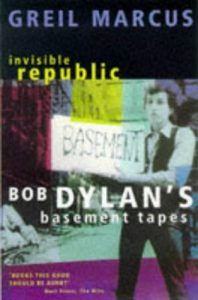
EMOTIONAL SONGS
Dylan’s more emotional lyrics – JUST LIKE A WOMAN, for example – are admired by experts such as Oxford and Harvard professor, Christopher Ricks.
“You love a song at first by applying a person you knew to that song. And then you understand the person better by virtue of the song. It’s a lovely virtuous circle.”
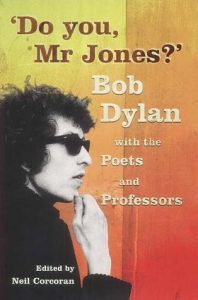
Dylan also writes death songs and escape songs. Knocking on Heaven’s Door was written for the western, Pat Garrett and Billy the Kid. We all recognise that feeling of weary regret: “Take these guns off of me / I can’t shoot them any more.”
But the uplifting gospel-style chorus – “Knock, knock, knockin’ on heaven’s door” – makes it an anthem of hope. Dylan performed it for Pope John Paul II at the Eucharistic Congress of 1997. It’s no surprise that it was the most requested song on Italian radio after the Pope’s death.
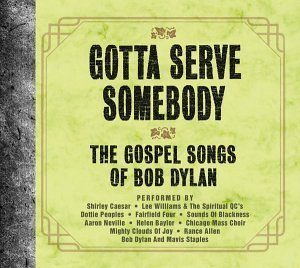
CULTURAL IMPACT
Dylan’s impact stretches beyond music. The 1999 film The Hurricane, with Denzel Washington, was inspired by Dylan’s 1975 HURRICANE, about the unjust imprisonment of boxer, Reuben ‘Hurricane’ Carter – a song so powerful that Carter was released.
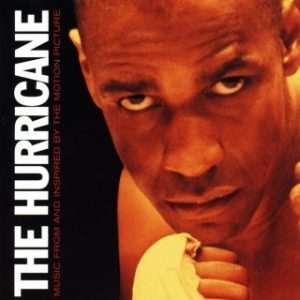
Despite heart trouble in 1997, Dylan continues to win awards, critical acclaim and new fans. His tours are sold out. Books and documentaries evaluate his cultural importance.
All in all, he seems more like a prophet than a rock star. Amid the ‘dumbing down’ of popular culture, Dylan remains a beacon of hope. Let’s hope he never retires.
BOB DYLAN TIME LINE
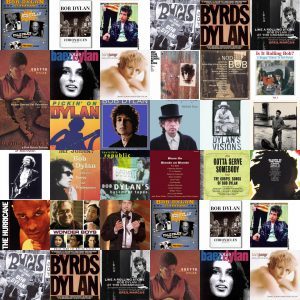
1941 Robert Allen Zimmerman is born in Minnesota, U.S.A.
early 1960s Changes his name to Dylan (after Welsh poet, Dylan Thomas).
A string of folk hits creates Dylan-Mania:
The Beatles and The Rolling Stones are among his fans.
1965 BRINGING IT ALL BACK HOME, rocks folk fans.
late 1960s Dylan retreats into family life after a motorcycle accident.
1970s Albums BLOOD ON THE TRACKS and DESIRE win new fans.
Late 1970s Dylan shocks everyone by converting to Christianity.
1980s & 1990s Dylan’s reputation fades.
2000 – date Dylan returns to form.
2001 LOVE & THEFT named Rolling Stone’s album of the year.
2005 No Direction Home, Scorsese’s documentary.
2016 Dylan awarded Nobel Prize for Literature.
FURTHER READING
Bob Dylan: Chronicles Volume 1
Greil Marcus: Dylan at the Crossroads
FURTHER LISTENING
Dylan’s songs have been performed by Sinatra, Elvis, Hendrix, Nina Simone, The Rolling Stones and U2. Try:
Joan Baez Sings Dylan
Every Grain of Sand by Barb Jungr
May Your Song Always Be Sung (collection)
Please Feel Free to Share:









December 19, 2016
Hub in the News
The News, Portsmouth, carried a long piece on the Portsmouth Writers’ Hub and our achievements this weekend, including my own desk on the Weekend front page.
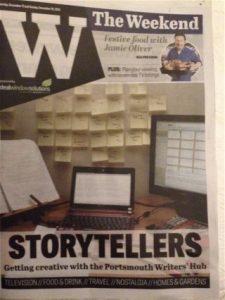
Thanks to Chris Broom for interviewing Tessa Ditner, AJ Noon, Diana Bretherick and myself, as representatives of the literary boom Pompey is currently enjoying. The article features events such as DarkFest and Portsmouth Bookfest, and publications like Day of the Dead, Dark City and Octomorphosis.
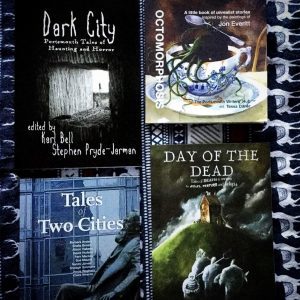
Portsmouth Writers’ Hub meets on the last Thursday of each month, usually at Cafe Parisien. Check the Facebook page for details.
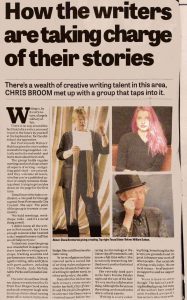
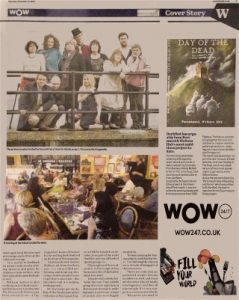
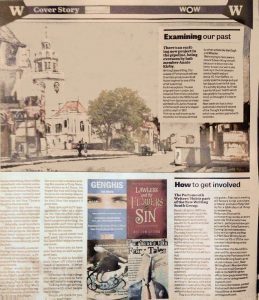
Please Feel Free to Share:









December 7, 2016
Mail’s Books of 2016
“The wealth of period detail and quirky characterisation suggest this series will be around for a long time. A must for fans of Ripper Street.” Mail on Sunday, Mail Online
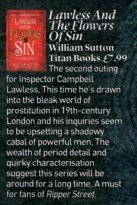
Exciting to discover Lawless and the #FlowersofSin in the Mail on Sunday’s Books of the Year 2016, in fantastic companyalong with Emma Donoghue, Paul Beatty, Margaret Drabble, along with Anthony Horowitz and Ian McEwan. Further reviews here.
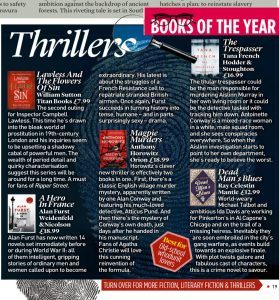
With recent strong reviews for Lawless and the Devil of Euston Square from Publishers Weekly and Barnes and Noble, and lovely things about Flowers of Sin from The Book Bag, Lawless is warming up.
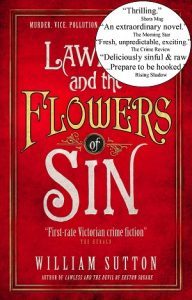
Please Feel Free to Share:









November 23, 2016
Victorian Sewers
Superb tour of the Victorian sewers with Guardian interactive. Where software engineering meets the Metropolitan Board of Works. With contributions from Sarah Wise, Judith Flanders and more.
“Envisage a city,” boomed a voice behind me, “as a body, pumping with fluids.” I turned to greet a smartly dressed man with an imposing moustache. He breathed in deeply, surveying the work around him with quiet satisfaction. “Blood, nerves, intestines, bowels. The whole kit and caboodle heaving with life.” Bazalgette exuded verve and energy. Even as he spoke to me, little men began equipping us to go underground, arming us with galoshes, greatcoats and gloves. The great man shook my hand warmly and pulled on a deerstalker to top it off. “Sergeant Lawless, I take it?”
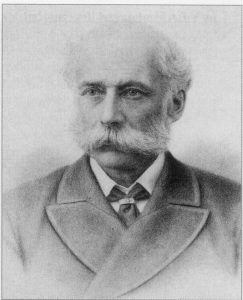
Joseph Bazalgette and his sewer workers, unsung heroes in Lawless and the Devil of Euston Square.
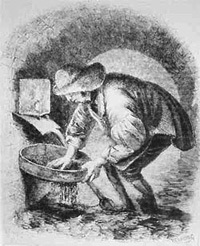
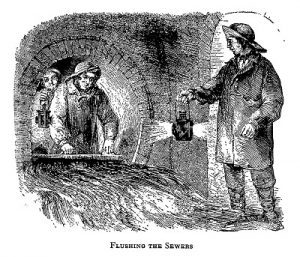
Please Feel Free to Share:









Superb tour of the Victorian sewers with Guardian interac...
Superb tour of the Victorian sewers with Guardian interactive. Where software engineering meets the Metropolitan Board of Works. With contributions from Sarah Wise, Judith Flandersand more.
“Envisage a city,” boomed a voice behind me, “as a body, pumping with fluids.” I turned to greet a smartly dressed man with an imposing moustache. He breathed in deeply, surveying the work around him with quiet satisfaction. “Blood, nerves, intestines, bowels. The whole kit and caboodle heaving with life.” Bazalgette exuded verve and energy. Even as he spoke to me, little men began equipping us to go underground, arming us with galoshes, greatcoats and gloves. The great man shook my hand warmly and pulled on a deerstalker to top it off. “Sergeant Lawless, I take it?”

Joseph Bazalgette and his sewer workers, unsung heroes in Lawless and the Devil of Euston Square.


Please Feel Free to Share:









November 22, 2016
From a Cobwebbed Drawer
“They’ve found Niall.”
“Thank God. I thought you were going to tell me something awful.”
She paused, her breath hollow down the phone. “Like what?”
“I don’t know.” I faltered. “Like, he’s fallen. Broken something.”
“I don’t know what he broke. But he’s dead.”
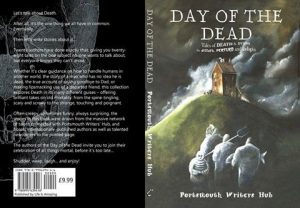
I’m proud to have a story, From a Cobwebbed Drawer, in the new collection Day of the Dead. It’s set in the present day and features two writers, friends and rivals, and their efforts to break into the mainstream of the writing world.
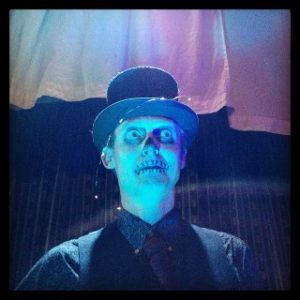
Inspired by our annual Day of the Dead show, the book is edited by Matt Wingett, Life is Amazing (Oct 2016) and features more than twenty established and emerging writers.
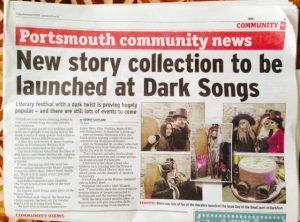
While I’m at it, let me mention the recent publications of:
Lawless story Lawless and the Dance of Death, Portsmouth News online & print
Two Heads in Dark City, edited by Karl Bell and Stephen Pryde-Jarman (Nov 2016)
interview with twisted gin-addled cabaret MC Joe Black in Southsea Lifestyle
interview with local music superstars Kassassin Street in Southsea Lifestyle
not forgetting 2014’s Portsmouth Fairy Tales for Grown Ups , edited by Tessa Ditner (June 2014), which features Lawless and the Pompey Piglets
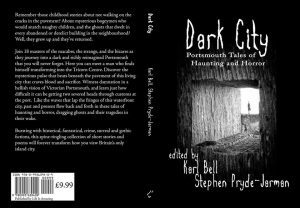
Further information about my stories here
Please Feel Free to Share:









November 20, 2016
Do or Die with @KassassinStreet
Do or Die with @KassassinStreet
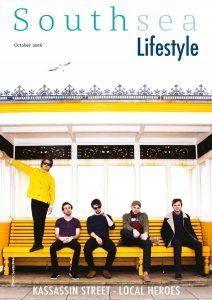
by William Sutton for Southsea Lifestyle Oct 2016
If you haven’t heard of Kassassin Street, you soon will. These five Pompey boys have been jamming since they were at college. The band is named after a street near the Cellars at Eastney. Melodic pop hooks, a psychedelic edge, and the ability to get the crowd dancing have rocketed the band from local gigs to an international following.
I first them saw at Castle Road Record Store Day. As my wife and I debated whether to hang around, the bloke next to us said, “You haven’t seen Kassassin St? You can’t go now.”
Half an hour later, we were fans.
As they prepare to go out on tour, between Southsea Fest and selling out the Wedgewood Rooms, I asked singer Rowan Bastable and the band a few questions.
Tell us about the yellow jacket.
Rowan has developed a passion for all things yellow. Bananas, Marigolds (the washing up kind), Donald Trump’s comb-over…
Loved the new songs at Victorious. Is the band growing in confidence?
Playing mostly new tracks to a big crowd was daunting but we knew Victorious Festival would be up for a party.
What sacrifices does it require to be in the band?
I won’t go into specifics, but I apologise to and thank friends, family and loved ones that put up with us hermiting ourselves away. And those who put up with me after a home gig hangover.
Nathan’s a super-communicative drummer. What is going through his mind?
Nathan lives for drumming. But I have control over what he hears live: generally my words of comfort in a sexy French accent.
Is your song-writing process always the same?
Every song in the set has started somewhere different. From jamming together to acoustic guitar and vocal demos or arrangements recorded in a bedroom. Some come out like the initial idea. Others take weeks of development. It can be exciting, frustrating and hair-pullingly stressful, but great.
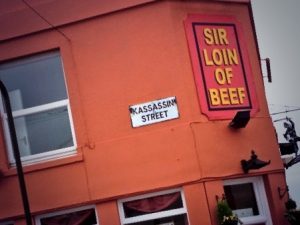
Tell us the secrets behind one song.
We have a new song called Do or Die. It’s a pick at people who complain about where they are without making an effort to change it. It’s also a guilty poke at myself, often a horrendous procrastinator!
Many people in our generation are stuck in rut, having trained for years to end up in minimum wage jobs, skills wasted. The lack of incentive can get you down. To quote Scroobius Pip, “The system might fail you but don’t fail yourself, just get better.”
It must be satisfying to ramp up the set till everyone’s dancing.
Getting people jumping about and losing themselves has been a goal from early days. Seeing it and hearing people sing along is an immense feeling. It spurs us on and lets you know you haven’t ****ed it up!
Influences?
Gigs and festivals. A great band whipping the crowd into a frenzy inspires you to get writing. Anyone who makes me think, ‘How did they make that noise?’

Worst moment?
Four grand’s worth of gear nicked half way through a tour. We finished the tour regardless and had a bloody good time doing it.

What do you think of the Pompey music scene?
Pompey is our home and we love playing here! I’ve seen killer line-ups announced at the Wedge and Pyramids, so hopefully a bigger wave of Pompey people will get excited about live music and new bands.

Best gig?
I can’t pick one. Secret Garden Party, where people were going nuts. SOS 4.8 in Spain, where we were treated like kings. Hometown shows at the Wedgewood Rooms or Victorious where you can let loose and know people are behind you all the way.
What’s next?
We’re back at the Wedgewood Rooms on 24th November, with a tour leading up. Also Southsea Fest is back, so we’ll see you at the Pyramids stage.
Ambitions?
Someone just told me you can batter and deep fry an avocado with bacon and an egg so all ambitions have been realised.
Visit kassassinstreet.com
Please Feel Free to Share:









November 15, 2016
Dark City
“Dismembered heads always cause delay at customs.”
7pm–9pm 30 November, Hunter Gatherer Coffee, 249 Albert Road, Southsea PO4 0JR
I’m proud to be part of the launch of Dark City, a new collection of short stories that emerged from Dr Karl Bell’s Supernatural Cities project.
Karl came to talk to the Portsmouth Writers’ Hub and inspired a great upsurge of creativity. I’m looking forward to seeing the book at the launch and the artwork that will be displayed at Hunter Gatherer Coffee to enhance the celebration.
Tell us you’re coming along at the Facebook event page.
My story Two Heads is set in the University of Portsmouth, with scenes at the ferry terminal and in a French coastal town.
I gestured to the box. We have an agreement. I don’t tell her what I’m working on if it’s too high on the Lorelei Horror Scale.
She rolled her eyes. “Carry-on bag?”
I grimaced. Carrion bag.
It features a new character for me, Professor of Forensic Anthropology, Esther Jardine. It was inspired by a talk between novelist Val McDermid and Professor Sue Black at the Harrogate International Crime Festival in July 2013. If you’ve heard Sue speak, or read Val’s books, you’ll guess there’s a gory element; but it’s a story about relationships, healthy and twisted. I’m excited to write more about Esther in future.

Other writers in the collection include the brilliant Justin MacCormack, Diana Bretherick, Jacqui Pack and VH Leslie.
The ferryport colour scheme reminded me of my lab. Less sterile. More encrusted baked beans than dried blood.
Only two weeks ago, another intriguing collection was published, Day of the Dead, edited by Matt Wingett, Life is Amazing. More on that soon.

Please Feel Free to Share:









November 13, 2016
Looking for Crime in All the Wrong Places
Looking for Crime in All the Wrong Places
appeared in Red Herrings, the magazine of the Crime Writers Association.
The past is fertile ground for crimes.
It’s worth seeking unusual sources. I found crimes in the dirtiest book I have ever read. “Doing your ‘research’ again?” says my wife, glancing over my shoulder at My Secret Life.
Every year, at CrimeFest, somebody raises “the Midsomer Problem”. How are there so many more crimes in fiction than in life? In St. Mary Mead, in Oxford, in Iceland? In the Faeroe Islands! Luckily for historical novelists, the past throngs with unexplained deaths. Judith Flanders’ The Invention of Murder shows how the modern conceit of ‘murder’ evolved, through public trials, burgeoning individual rights, and cheap sensationalist newspapers: rich sources for Victorian crime writers.
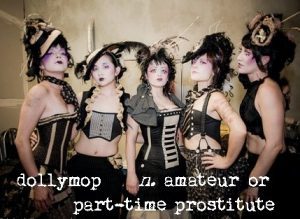
People are always offering writers ideas. You know the patter: “You’re a writer, eh? Here’s an idea for you… Send me the royalties when the film comes out.” Non-writers don’t realise it’s the structure that takes time: actual chapters, words in the right order. “I could write a book, you know.”
“Bugger off, then,” I mutter, “and write it.”
Yet somewhere we stumble on our ideas. We are always seeking the game-changing twist.
Newspapers. Pamphlets. Journals. Linda Stratmann uses The Illustrated Police News to illuminate society’s underbelly. Modern writers spin tales off Victorian classics: intertextual experiments with the Brontes and Dickens. Gothic sensibilities still inspire page and screen. Sensation fiction still casts its spell. The British Library republished early detective novels. Real life detective McLevy delights listeners in David Ashton’s stories.
Yet how to hear their authentic voices? Their secrets, free from censorious moralising? To hear “those most mysterious of mysteries, the mysteries which are at our own doors” (Henry James, praising Wilkie Collins).
I’ve unearthed crimes in intriguing places.
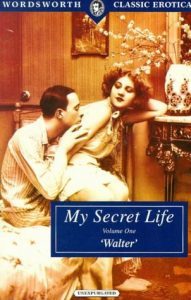
Henry Mayhew interviewed street folk, capturing japes, crimes and slang. Try his ‘Narrative of a Pickpocket’ in London Labour and the London Poor; or the grimy account of the ‘Traffic in Foreign Women’. From Lee Jackson’s original sources on VictorianLondon.org I filched a policeman’s tale of a counterfeit ring, spicing it with John Camden Hotten’s Dictionary of Slang.
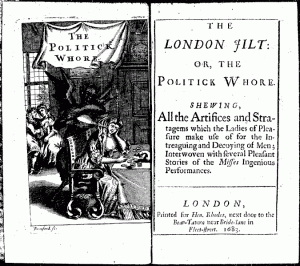
More shocking than obvious crimes, however, are injustices casually recorded in memoirs and trashy literature. Where can you overhear conversations, clandestine thoughts, improper liaisons and backstreet rendezvous? In erotic literature.
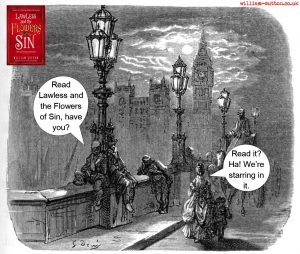
The threat of ruination shadows Victorian characters, from Jane Eyre via Lady Audley to Dorian Gray. Yet in ‘literature’ it is never described as plainly as in Rosa Fielding, Victim of Lust, or Madame Birchini’s Dance by ‘Lady Termagent Flaybum’.
When Dorian Gray goes to the bad, what is he up to? When Doolittle sells Eliza, is it unusual? When Jekyll regrets Hyde’s dark urges, when Steerforth corrupts Little Emily, what are they doing?
Look no further than Walter’s My Secret Life. Walter goes further. Darker. Deeper. This eleven volume erotic memoir is not the best-written book you will ever read, not the most entertaining, nor the most erotic. But it is stuffed full of life, a scintillating social history by a remarkable mnemonist. Judith Flanders confesses qualms about researching this epic of debauchery, but she cannot resist his eye for detail. And details are the stuff of fiction.
Walter is cursed with memoriousness. He describes where he followed women, where he took them, chamber pots and bedsteads, petticoats and drawers, hairstyles, faces, and other parts of the anatomy, in extraordinary detail. There is no better guide to Victorian costs: wine, food and women. Where Mayhew sermonises on trafficking in foreign women, Walter shows us how they lived. By turns adventurous, demeaning, affectionate and disgusting, My Secret Life describes rich and poor, servants and employers, business transactions and passionate affairs. There are women who take lovers for pleasure, for financial security, for those little extras. Yellow-haired Kitty insists she is not a loose woman, but does it for “sausage-rolls, meat-pies and pastries.”
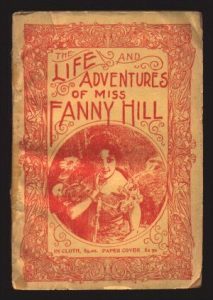
Sex isn’t a crime, though. Why write about this in Red Herrings?
Of Walter’s myriad encounters, some are pornographic and perverse. Some are sordid, but revealing. Many would today see him under investigation from Operation Yewtree.
He tells of backstreet rendezvous and opulent bordellos. He shows us teenage voyeurism and middle-aged affairs. He tells how young gents were introduced to sexuality by aunts, cousins, cooks or maids. The table of contents makes eye-opening reading:
An erotic nursemaid – Ladies abed – My cock – A frisky governess – Cousin Fred – Thoughts on pudenda… Baudy pictures … My aunt’s backside – Haymaking frolics…
Actual crimes do crop up. In volume 3, Walter is ‘bilked’. He describes the swindle luridly: a woman ‘bought’ for ten shillings suddenly demands £5. She calls for the ‘bully’. Frightened, Walter smashes a window to cry for help. A policeman walks away, bribed. He threatens his way out, chastened, clutching a poker.
Walter commits dreadful acts. He cajoles, coerces, and pounces. He never accepts that “no means no”: “Not one virtuous woman in a hundred would tell anyone…if a man said to her. ‘Oh! I’m dying to fuck you,’ and she’d feel in her heart complimented by his desires.”
Some lament their ruination. Others strike up long affairs with him. Walter feels little compunction.
Several of these episodes we would today describe as rape. He does not hesitate to pick up a girl as young as fourteen. The official age of consent was still 12. That this was already contentious is clear from her friend’s behaviour and a cab driver’s insults.
Walter thinks nothing of voyeurism in brothels, continental bordellos and railway toilets. He gets moved on for public indecency. He asks many women how they came to such a life, wilfully, coerced or by chance. He persuades a French prostitute to bring her sister to London: trafficking, of a sort.
Do an author’s crimes mean we should not read their work? Discuss. The most gripping account of a crime I’ve read was ‘Autobiography of a Murderer: Blind Rage’ by Henry John Reid, Granta 46, Crime, 1994.
Yet even Walter’s identity is a mystery: most likely notorious erotobibliomaniac, Herbert Ashbee. This puzzle is fascinating. The Obscene Publications Act of 1857 coincides with the British Museum Library starting its Private Case. Thousands of volumes were excluded from the catalogue until the 1990s, locked in the stacks, accessible only to knowing scholars. Ashbee may have bribed the Museum to assure his collection’s safety in exchange for his Don Quixote first editions. Amid such censoriousness, it is no wonder Walter agonised whether to burn his manuscript or publish.
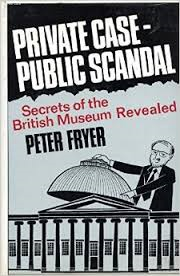
Whether fantasy or reportage, we can never know. It feels too particular, poignant, and tawdry to be invented. Walter does not aim to shock, like de Sade, manufacturing neither erotica’s happy endings nor pornography’s crescendos of perversity. Though at times ashamed or frustrated, he neither aggrandises nor justifies himself. This is a plain-speaking portrait of a sex addict.
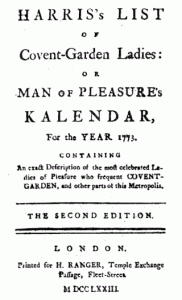
Historical sources sometimes reassure us: we have thrown off hypocrisy; we’re enlightened. Yet, as Walter notes, “crying out at the sins of others was always a way of hiding one’s own iniquity”. Books may also warn how little we’ve improved. Walter’s entitled licentiousness is based on inequality sexual and financial, redolent of the era. Does this inequality just belong to the past?
It’s only twenty years since Edward Heath’s Chief Whip boasted of covering up ‘scandals involving small boys’. Amid continuing revelations of grooming, coercion, exploitation, institutionalised abuse, police collusion, and Operation Yewtree, Walter’s memoir reads not only as an unparalleled source but a challenge.
My Secret Life can be downloaded free at gutenberg.org or horntip.com.
Musician Dominic Crawford is creating an audio version at mysecretlife.org, with illustrations.
Abridged versions give sufficient flavour, if Walter’s thousand pages seem daunting.
William Sutton’s Lawless & the Flowers of Sin is published by Titan Books.
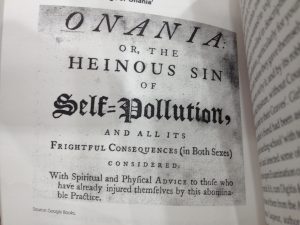
Please Feel Free to Share:









November 5, 2016
Host of Dark Songs on That’s Solent TV
Interview on That’s Solent TV about Dark Songs and DarkFest
Dark Songs. Brilliant songwriters.
6pm Sunday 6 Nov, Square Tower, Broad Street, PO1 2JE
Tickets available: £6 https://www.wegottickets.com/event/375811
or £4 concessions:
https://www.wegottickets.com/event/375812
Jamie West: introspection delivered extrovertly
Eilís Phillips: sweet & ethereal monster folk
Radio KWG: Acoustic Excerpts from the Road
Philip Jeays: superb crafted songs, poetic sensibility, mordant wit
Hosted by William Sutton, Author. Part of Portsmouth Darkfest.
More at: william-sutton.co.uk/darksongs/
Please Feel Free to Share:










